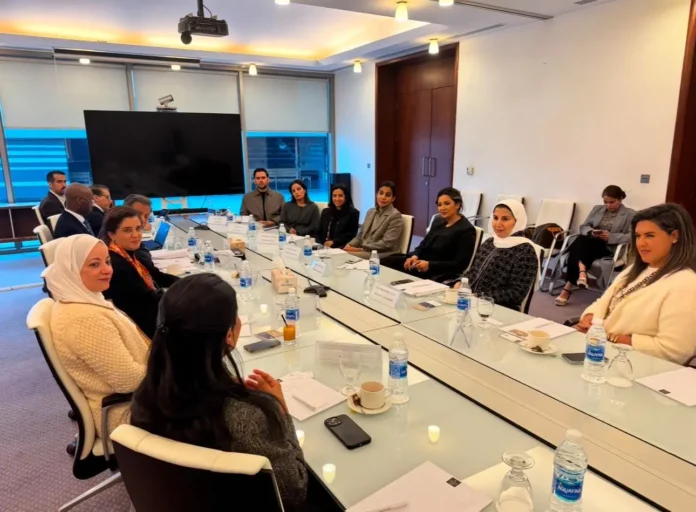The World Health Organization (WHO) office in Kuwait recently hosted a roundtable with Regional Director Dr. Hanan Balkhy and women leaders from across the country, aiming to enhance partnerships focused on improving health outcomes. The session emphasized the critical role women play in advancing public health and discussed key initiatives such as mentorship programs for female health leaders, expanding women’s participation in scientific research, and fostering collaboration on gender health issues at both regional and global levels.
Dr. Hanan Balkhy praised Kuwait’s progress in supporting women, sharing, “I had the privilege of meeting truly inspirational women from Kuwait who have made significant contributions in many fields. It was great to see their leadership and passion in playing major roles for the betterment of their community.”
In her remarks, Dr. Balkhy acknowledged Kuwait’s continued efforts to empower women, stating, “Kuwait has always been on the right path when it comes to women’s leadership. They have done remarkable work in paving the way for women in the region. I look forward to strengthening our partnerships with them in the future.”
The event, held at the UN House, also highlighted the importance of increasing women’s roles in research and scientific endeavors, while underscoring Kuwait’s achievements in advancing women’s participation in leadership positions. This collaboration is part of WHO’s broader goal to address gender health issues and ensure that women’s health remains a central focus in global health discussions.
Dr. Assad Hafeez, WHO Representative in Kuwait, further emphasized the significant strides Kuwait has made in empowering female leaders. “Women are critical to achieving Kuwait’s health goals and sustainable development,” he remarked. “We are pleased to see the excellent work women are leading here in Kuwait. This meeting is a step toward furthering our collaborative efforts, both within Kuwait and across the region.”
Additionally, Dr. Hafeez highlighted the importance of prioritizing women’s health and well-being, noting that issues such as independence, self-care, career opportunities, and overall social empowerment are integral to improving women’s health. “This year, there is a particular focus on women’s health, and we aim to improve not only their physical health but also their mental and emotional well-being.”
The discussion made it clear that women’s health is a global priority. With their unique health challenges, women require focused attention to improve not just their physical health but also their overall quality of life. By prioritizing women’s health, we can contribute to the growth of strong families, communities, and economies. When women thrive, societies thrive.


